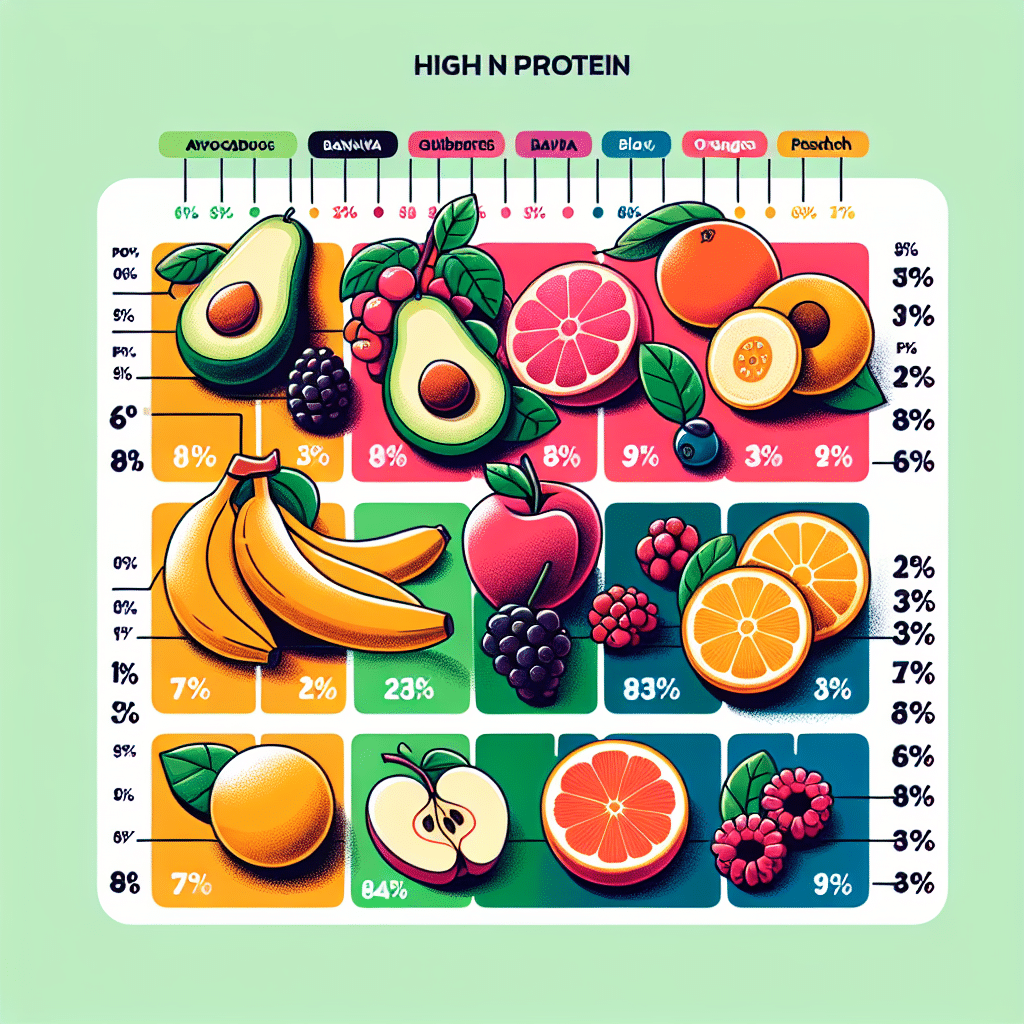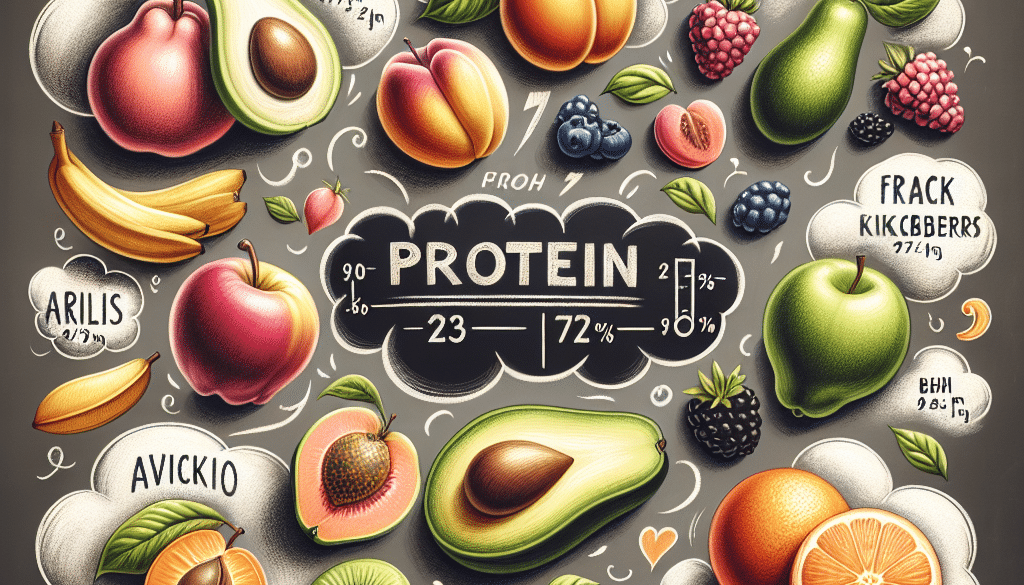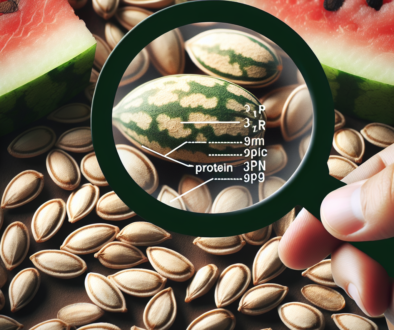What Fruits Are High In Protein? The answer
Table of Contents
- High-Protein Fruits to Enhance Your Diet
- Understanding Protein in Fruits
- Fruits with the Highest Protein Content
- Incorporating High-Protein Fruits into Your Diet
- The Role of Fruits in a High-Protein Diet
- Case Studies and Statistics
- Conclusion: The Protein Potential of Fruits
- Discover ETprotein’s High-Quality Protein Products
High-Protein Fruits to Enhance Your Diet

When it comes to protein-rich foods, fruits are not typically the first category that comes to mind. Often overshadowed by meat, dairy, and legumes, fruits are more commonly recognized for their vitamins, minerals, and fiber content. However, certain fruits can provide a surprising amount of protein, making them a valuable addition to any diet, especially for those seeking plant-based protein sources. In this article, we will explore which fruits are high in protein and how they can contribute to a balanced diet.
Understanding Protein in Fruits
Proteins are essential macronutrients made up of amino acids, which are the building blocks of our body’s tissues. While fruits are not the highest source of protein compared to other food groups, they can still contribute to your daily protein intake. It’s important to note that the protein content in fruits is generally lower than in other foods, but they can be part of a well-rounded diet that includes a variety of protein sources.
Fruits with the Highest Protein Content
Here is a list of fruits that are relatively high in protein, which can be included in your diet:
- Guava: This tropical fruit leads the pack with about 4.2 grams of protein per cup. Guava is also rich in vitamin C and dietary fiber.
- Avocado: Often mistaken for a vegetable, avocado is a fruit that contains about 3 grams of protein per cup. It’s also a great source of healthy fats and potassium.
- Apricots: Dried apricots offer about 2.2 grams of protein per cup, along with a good dose of iron and potassium.
- Kiwi: This small fruit packs a punch with about 2.1 grams of protein per cup, as well as vitamin C and vitamin K.
- Blackberries: With about 2 grams of protein per cup, blackberries are also high in vitamin C and fiber.
- Oranges: Known for their vitamin C content, oranges provide about 1.7 grams of protein per cup.
- Bananas: A popular fruit, bananas offer about 1.3 grams of protein per cup, along with potassium and vitamin B6.
While these fruits can contribute to your protein intake, it’s important to combine them with other protein sources to meet your daily needs.
Incorporating High-Protein Fruits into Your Diet
Adding high-protein fruits to your diet is simple and can be done in a variety of ways:
- Include a serving of guava or kiwi in your breakfast for a protein boost.
- Use avocado in salads, sandwiches, or as a topping for toast to increase your protein intake.
- Snack on dried apricots or blackberries between meals for a quick protein-rich snack.
- Add bananas or oranges to smoothies for added flavor and protein.
Remember that while these fruits provide protein, they should be part of a diet that includes a variety of protein sources to ensure you’re getting all the essential amino acids your body needs.
The Role of Fruits in a High-Protein Diet
Fruits can play a significant role in a high-protein diet, especially for vegetarians and vegans who need to find alternative protein sources. They can be combined with other plant-based proteins like nuts, seeds, and whole grains to create complete protein meals. For example, a smoothie made with kiwi, spinach, and hemp seeds can provide a well-rounded source of protein.
Case Studies and Statistics
Research has shown that incorporating a variety of protein sources, including fruits, can have health benefits. A study published in the “American Journal of Clinical Nutrition” found that a higher intake of plant-based proteins, including those from fruits, was associated with a lower risk of mortality.
Additionally, the “Global Burden of Disease Study” suggests that a diet high in fruits and vegetables can reduce the risk of chronic diseases and contribute to a longer lifespan. By including high-protein fruits in your diet, you’re not only getting protein but also a host of other nutrients that can support overall health.
Conclusion: The Protein Potential of Fruits
In conclusion, while fruits are not the most protein-dense foods available, they can still contribute to your daily protein intake. High-protein fruits like guava, avocado, apricots, kiwi, blackberries, oranges, and bananas can be easily incorporated into your diet. By combining these fruits with other protein sources, you can create a balanced and nutritious diet that supports your health and wellness goals.
Discover ETprotein’s High-Quality Protein Products
If you’re looking to supplement your diet with additional protein, consider exploring ETprotein’s range of organic bulk vegan proteins. Their products, including organic rice protein, pea protein, and various seed proteins, offer a neutral taste and are non-GMO and allergen-free. With L-(+)-Ergothioneine purity over 98%, ETprotein caters to a diverse range of industries and dietary needs.
Whether you’re involved in sports nutrition, weight management, or simply seeking to enhance your health and wellness, ETprotein provides comprehensive solutions to meet all your protein requirements. As a trusted supplier for leading global brands, ETprotein ensures the highest quality in their products. For more information or to sample their products, please contact them at sales(at)ETprotein.com today.
About ETprotein: ETprotein, a reputable protein and L-(+)-Ergothioneine (EGT) Chinese factory manufacturer and supplier, is renowned for producing, stocking, exporting, and delivering the highest quality organic bulk vegan proteins and L-(+)-Ergothioneine. They include Organic rice protein, clear rice protein, pea protein, clear pea protein, watermelon seed protein, pumpkin seed protein, sunflower seed protein, mung bean protein, peanut protein, and L-(+)-Ergothioneine EGT Pharmaceutical grade, L-(+)-Ergothioneine EGT food grade, L-(+)-Ergothioneine EGT cosmetic grade, L-(+)-Ergothioneine EGT reference grade and L-(+)-Ergothioneine EGT standard. Their offerings, characterized by a neutral taste, non-GMO, allergen-free attributes, with L-(+)-Ergothioneine purity over 98%, 99%, cater to a diverse range of industries. They serve nutraceutical, pharmaceutical, cosmeceutical, veterinary, as well as food and beverage finished product distributors, traders, and manufacturers across Europe, USA, Canada, Australia, Thailand, Japan, Korea, Brazil, and Chile, among others. ETprotein specialization includes exporting and delivering tailor-made protein powder and finished nutritional supplements. Their extensive product range covers sectors like Food and Beverage, Sports Nutrition, Weight Management, Dietary Supplements, Health and Wellness Products, and Infant Formula, ensuring comprehensive solutions to meet all your protein needs. As a trusted company by leading global food and beverage brands and Fortune 500 companies, ETprotein reinforces China’s reputation in the global arena. For more information or to sample their products, please contact them and email sales(at)ETprotein.com today.














